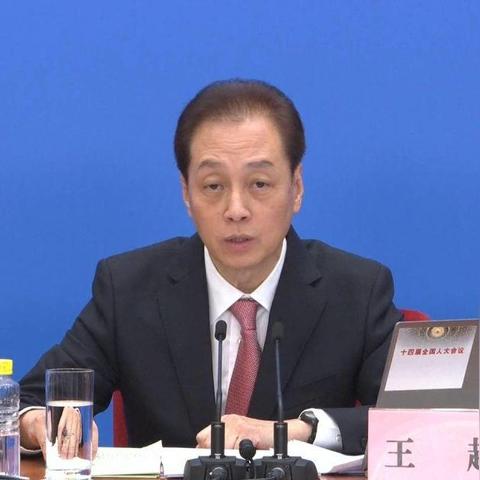Introduction
As globalization intensifies, the legal and policy landscape becomes increasingly complex. Countries are grappling with the balance between asserting their influence through "long-arm jurisdiction" and the responses those jurisdictions face, particularly in terms of resistance via "judicial countermeasures." The intricate relationship between these legal concepts has far-reaching implications in international business and diplomacy. This article delves into the nuances of these strategies, focusing on the evolving policies that are shaping this dynamic. It is important to note that "2025" mentioned in the title refers to the year by which significant policy changes are expected to be enacted for the benefit of accessing accurate and free legal resources.
Long-Arm Jurisdiction
Long-arm jurisdiction refers to the legal principle that allows a court to exercise authority over a defendant, even if they are outside its normal territorial boundaries. "2025 policy aims to clarify and possibly extend the scope of long-arm jurisdiction", ensuring that entities from different jurisdictions are held accountable for actions that significantly affect the interests of a particular country or region. The justification for this assertion is often based on the "effects doctrine," which posits that a jurisdictional link is established through significant negative effects or activities within the territory.
This approach has been used internationally to litigate matters ranging from financial scams to the exploitation of global resources. However, it also faces criticism for potentially infringing on the sovereignty of others and for spreading the reach of domestic laws beyond their borders.
Judicial Countermeasures
In opposition to the expansive reach of long-arm jurisdiction, "judicial countermeasures" encompass a set of legal responses designed to mitigate the effects of foreign jurisdictional assertions. Countries might employ these measures to safeguard their nationals or entities against what they perceive as unjust or politically biased applications of foreign laws. These tactics can range from reciprocal legal actions to more diplomatically-oriented economic sanctions or trade barriers.
Countermeasures highlight the delicate balance between international cooperation and the protection of national interests. While fraught with practical and moral considerations, they are a testament to the interplay of international law and geopolitical influence.
Policy Changes in 2025
The year 2025 marks the anticipated evolution of policies related to long-arm jurisdiction and judicial countermeasures. Policymakers will seek to uphold several key objectives: to protect national interests, to prevent the abuse of legal power, and to foster a fair international legal environment.
"2025 Policy Goals: Precision and Fairness"
The central aim is to achieve greater precision in the application of jurisdictional powers, ensuring that the exercise of long-arm jurisdiction is well-founded and proportional. This shift toward precision aims to diminish the complaints of overreach and sovereign interference.
The policies of 2025 are expected to develop an international framework that rewards fair justice and discourages exploitative legal tactics. Such a framework might include mechanisms for reciprocal legal restraint, as well as clearer guidelines on the compatibility of long-arm jurisdiction with international laws and norms.
Precision in Jurisdiction
Noting the criticisms directed at the unilateral application of jurisdictional power, "2025 precise policy guidelines" are designed to tighten the criteria for determining when long-arm jurisdiction is appropriate. These guidelines will aim to achieve a balance, by outlining conditions under which the effects doctrine or other principles can justify the exercise of extraterritorial jurisdiction.
For example, the policy might require that the adverse effect on the country's territorial interests be substantial and directly traceable to the defendant's actions. Additionally, it may emphasize the importance of international cooperation and mutual recognition of legal proceedings to prevent conflicts and redundancies.
The Role of Free Legal Resources
To further transparency and the fair application of laws, "2025 policies encourage the availability of free, accurate legal resources". These resources are pivotal for individuals and entities to understand and comply with legal requirements, reducing the risk of non-compliance due to ignorance or misinformation.
A wealth of accurate legal resources available free of charge will empower businesses and citizens to navigate the complexities of international legalities. Moreover, by democratizing legal knowledge, such resources contribute to a level playing field where all participants can protect their rights effectively.
Balancing Acts
Balancing the assertive nature of long-arm jurisdiction with measures designed to counteract it is a delicate art. The policies leading up to and for the year 2025 will be mindful of the complex web of international relations, aiming to safeguard fairness and sovereign rights without stifling the justice system's ability to address transnational challenges.
International Cooperation
To meet the challenges presented by global legal issues, "2025 plans to strengthen international cooperation". This cooperation will be key in formulating a framework that both respects national sovereignty and facilitates effective global governance.
Joint committees and dialogues between countries can help in identifying common grounds and mutual interests in major legal issues. This can lead to agreements on the development of multinational laws that grapple with issues arising from overlapping jurisdictions.
Summation
In conclusion, the year 2025 promises to herald significant shifts in the way long-arm jurisdiction and judicial countermeasures are viewed and managed. "2025 policies strive towards precision and fairness", with a strong emphasis on creating a more just and accessible legal landscape in the face of globalization's challenges. The widespread availability of free and accurate legal resources will play a pivotal role in empowering individuals and corporations to respect and navigate this evolving legal terrain, ultimately leading towards a more stable and harmonious international society.
















 琼ICP备2023003230号-1
琼ICP备2023003230号-1
还没有评论,来说两句吧...